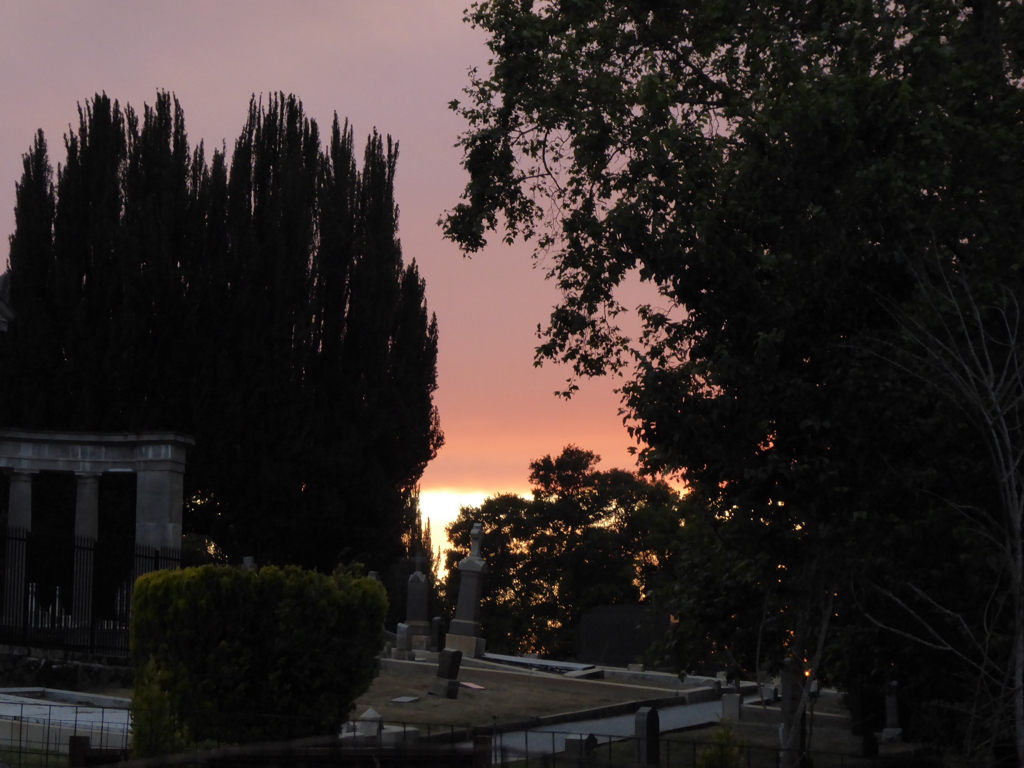Back in mid-February, during a long drive up to Seattle, a blood clot formed in my leg, dislodged, and traveled up my veins to settle in my right lung. Or so it now appears, for this is somewhat hypothetical. But it was a long drive, and we didn’t get out and stretch every hour, as you’re supposed to do during long drives; and when I got to Seattle, I started coughing, and thought to myself how unfair it was that I was getting bronchitis again, since I had already had it in November and I never got bronchitis more than once a winter.
Thinking it was bronchitis, I didn’t worry when the cough and the general feeling of being tired stretched out for a month, then two months. So many people were having serious respiratory infections this past winter that what I was experiencing didn’t seem all that bad. Until finally it got so that it hurt to breath, and I was talking to Paul, who was also having pain while breathing, and he told me that he went to the doctor and found out that what he had wasn’t a respiratory infection at all. It was only then, in mid-April, that I decided to go to the doctor, and after a series of tests and a trip to the emergency room, I learned I had a pulmonary embolism. Mine was not a particularly serious case — I did not require surgery, and I didn’t even have to stay overnight in the hospital — but still, a pulmonary embolism can kill you. I actually took two days off from work.
The doctors put me on a course of anti-coagulants: I had to inject myself with one anti-coagulant for seven days, and then I started taking another anti-coagulant orally twice daily. I am still taking the pills, and will continue taking them until the doctor tells me to stop. And by the way, I thanked Paul, several times, for prompting me to finally go to the doctor.
Now that I had this diagnosis — a rather frightening diagnosis, if truth be told — I began to realize just how tired I felt. I had been pushing myself as hard as usual, both at work and in the rest of my life, but now I realized that I really couldn’t push that hard. (I wonder: had I not gotten the diagnosis, would I have just continued pushing myself until I collapsed?) I finally realized that I needed to slow down. I dropped several big commitments, including a big family reunion, and felt some guilt and shame for doing so. Then I dropped some smaller commitments. I worked at home whenever I could. I discovered that I needed to sleep ten to twelve hours a night, and still take a 3 hour nap in the afternoon most days. Basically I felt fine; but if I pushed too hard, or worked too long, I would become exhausted very quickly. This was an odd sort of illness: no pain, no real symptoms aside from some shortness of breath; I was mostly tired.
Thinking that once I started the anti-coagulants, I would be back to normal in a week or two, I told as few people as possible that I was ill, or what my illness was. But I did not recover very quickly. I had to get used to sleeping twelve hours a day, and not having enough energy to do any housework. in fact, once I came home from work I didn’t have much energy to do much more than sit and look out the window. It also began to sink in that I could have died. I had made my peace with dying many years ago, but I discovered that I was not so keen on dying of something I had never heard of before. I mean, a heart attack I could accept, but a pulmonary embolism? So I mostly ignored the whole “I coulda died!” thing; sometimes denial is a very useful tool for living.
Here I am, more than four months after this whole thing started, more than two months after I got a diagnosis. I’m getting better, and so far the doctor is pleased with my progress. But if I forget myself, and overwork, or go for a long walk, or do too much of anything, I’m exhausted for days afterwards. And while the line on the graph of my health is generally trending upwards, the slope of the graph is not nearly as steep as I would like. I have to remember how little I can accomplish: I can go to work, come home, and sleep; if I’m lucky, I can take a walk. It would be easy to become discouraged, or to get depressed; instead, I’m mostly able to enjoy this forced vacation.
The moral of the story? I don’t think there is a moral to this story. Things happen to you, you do the best you can — that’s not a moral. Nor will this even be a story until it comes to an end, and who knows when that will be.
No moral, but I do have some excuses: If I haven’t gotten back to you about something, it’s because I ran out of energy. If I haven’t done whatever it is you asked me to do, it might be because I’m so tired I forgot completely (my memory does not seem to be functioning as well as usual). That’s one very small benefit of an illness like this: I have an excuse for almost everything.


